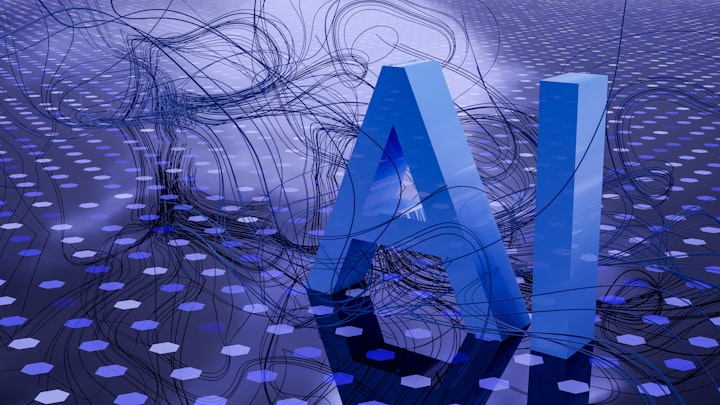15 Jobs at Threat due to A.I.
A.I. Takeover

Picture a future where Artificial Intelligence unfolds its wings, transforming industries and leaving an indelible mark on the job market.
The rapid advancements in Artificial Intelligence (AI) have undoubtedly transformed various industries, offering efficiency and innovation. LINK 8
However, this technological evolution comes with its set of challenges, particularly concerning the potential threat to certain jobs.
In this article, we'll explore 15 jobs that may face risks due to the rise of AI.
Data Entry Clerks,

As AI algorithms become proficient in handling data input tasks, the demand for manual data entry clerks is likely to decline.
Telemarketers,

AI-driven chatbots and virtual assistants are becoming increasingly effective in customer engagement, reducing the need for human telemarketers.
Customer Service Representatives,
Automated systems for helping customers and AI chatbots might affect the usual customer service jobs. These changes could be most noticeable when it comes to dealing with common questions or problems.
Traditional customer service roles might see changes because of automated systems and AI chatbots. These technologies could handle many routine queries, potentially reducing the need for human customer service representatives in those areas.
Retail Cashiers,

The advent of automated checkout systems and cashier-less stores could lead to a decrease in demand for traditional retail cashiers.
Assembly Line Workers,

AI-powered robots are becoming more adept at tasks like assembly, potentially reducing the need for human workers in certain manufacturing processes.
Routine Manual Laborers,
Some jobs that require doing the same thing over and over again and jobs that need a lot of physical effort might be done by machines controlled by AI instead. This could make workplaces safer and more efficient.
Taxi and Truck Drivers,

The emergence of autonomous vehicles poses a threat to jobs in the transportation sector, particularly for drivers of taxis and trucks.
Bookkeepers,
As AI-powered accounting software advances, it is becoming more intricate, raising the possibility of diminishing reliance on manual bookkeeping services.
This trend suggests a shift towards automation in the accounting sector, where AI technology could handle tasks traditionally performed by human bookkeepers. Consequently, there may be a decreased demand for manual bookkeeping services as businesses opt for AI-driven solutions to streamline their accounting processes.
Journalists for Routine Reporting,
AI algorithms can generate news articles based on data, which may impact jobs in routine reporting, although human journalists remain crucial for investigative and in-depth reporting.
Administrative Assistants,
AI-driven virtual assistants and office automation tools may decrease the demand for administrative support roles.
Bank Tellers,
With the rise of online banking and ATMs, traditional bank teller roles may see a decline as AI takes over routine transactions.
Travel Agents,

AI-driven algorithms and online platforms have streamlined the process of trip planning, potentially reducing the need for human travel agents.
Routine Medical Diagnosticians,
Using AI for routine medical checks may make the job of medical diagnosticians harder. But they still need humans to handle complex cases because those need careful thinking and understanding.
Security Guards,

AI-powered surveillance systems and robotic security solutions may play a role in reducing the demand for traditional security guard positions.
Data Analysts for Basic Reports,
As AI tools improve in analyzing data, positions focused on simple data reporting might encounter difficulties.
Nevertheless, there will still be a need for expert data analysts who can handle complex analysis and interpretation tasks.
Final words,
While AI undoubtedly brings innovation and efficiency to various industries, it is essential to consider its potential impact on employment.
The evolving job landscape requires adaptability and upskilling to ensure a smooth transition into new roles and opportunities.
As we navigate this technological revolution, it's crucial to strike a balance between embracing AI advancements and preserving the value of human skills and expertise.
About the Creator
Johnny Hembrom
I uncover the lesser-known mysteries of India that have remained hidden from the world's gaze.
Come, join me on this Journey!






Comments (1)
Something to think about